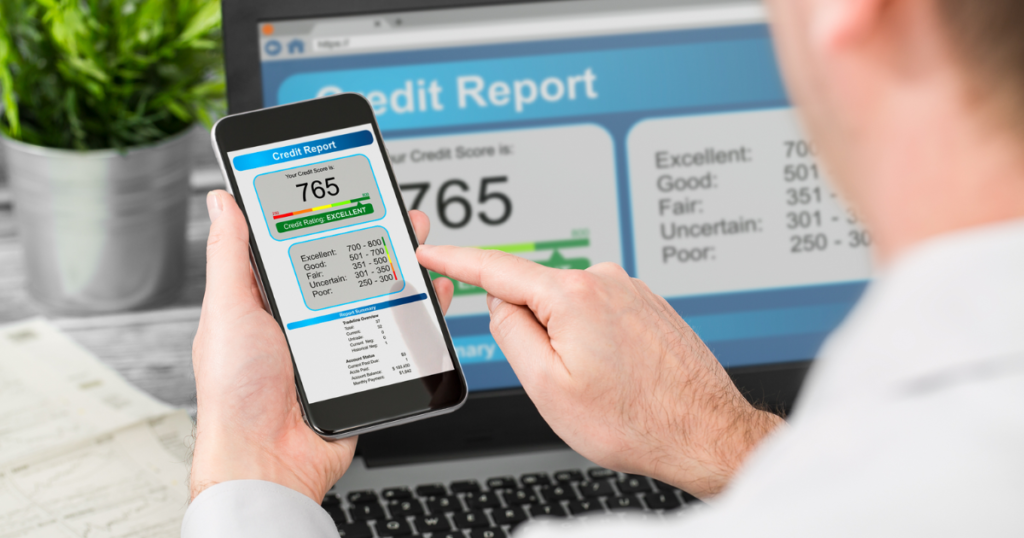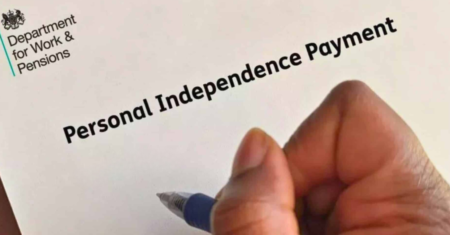
If you’re thinking of applying for a loan, a mortgage, or a credit card, you might be wondering how your credit score will affect your chances of getting approved. Your credit score is a number that reflects your credit history, which is based on how you’ve managed your debts and payments in the past. The higher your credit score, the more likely you are to get a good deal from lenders, because they see you as a low-risk borrower. But how do you check your credit score, and what factors influence it? In this blog post, we’ll explain everything you need to know about credit score check, and how you can improve your score over time.
First of all, what is a credit score? A credit score is a three-digit number that ranges from 300 to 850 in the US, and from 0 to 999 in the UK. It is calculated by different credit bureaus, such as Experian, Equifax, and TransUnion, using the information in your credit report. Your credit report is a record of your credit activity, such as how many accounts you have, how much debt you owe, how often you make payments on time, and how long you’ve had credit. The credit bureaus use different formulas and criteria to assign you a score, so your score may vary slightly depending on which bureau you check with.
Related articles
1- When is open enrollment for health insurance 2024
2- Health Insurance: Everything You Need to Know
3- What and Who Can Apply for Nations Benefits
4- Learn Here How to Apply SSDI Benefits
If you’re thinking of applying for a loan, a mortgage, or a credit card, you might be wondering how your credit score will affect your chances of getting approved. Your credit score is a number that reflects your credit history, which is based on how you’ve managed your debts and payments in the past. The higher your credit score, the more likely you are to get a good deal from lenders, because they see you as a low-risk borrower. But how do you check your credit score, and what factors influence it? In this blog post, we’ll explain everything you need to know about credit score check, and how you can improve your score over time.
First of all, what is a credit score? A credit score is a three-digit number that ranges from 300 to 850 in the US, and from 0 to 999 in the UK. It is calculated by different credit bureaus, such as Experian, Equifax, and TransUnion, using the information in your credit report. Your credit report is a record of your credit activity, such as how many accounts you have, how much debt you owe, how often you make payments on time, and how long you’ve had credit. The credit bureaus use different formulas and criteria to assign you a score, so your score may vary slightly depending on which bureau you check with.
Secondly, how often should you check your credit score? There is no definitive answer to this question, as different situations may require different frequency of checking. However, some general guidelines are:
- Check your credit score at least once a year, or more often if you’re planning to apply for a major loan or credit card. This will help you spot any errors or discrepancies in your report, and correct them before they affect your application.
- Check your credit score before and after making any significant changes to your credit situation, such as paying off a large debt, closing an account, or opening a new one. This will help you monitor how these actions impact your score, and adjust your strategy accordingly.
- Check your credit score regularly if you’re working on improving it, or if you suspect identity theft or fraud. This will help you track your progress and identify any suspicious activity on your report.
There are several ways to check your credit score. Here are some popular platforms that offer free credit score checks:
- ClearScore: ClearScore provides free access to your credit score and report1. You can also find a wide range of offers tailored to your score in the ClearScore marketplace1.
- MoneySuperMarket: MoneySuperMarket’s Credit Monitor allows you to perform a credit score check for free2. It also provides hints and tips to improve your score and shows you personalized card and loan deals2.
- Experian: Experian offers a free Experian account that allows you to get your Experian Credit Score without paying anything1. Your free score will be updated every 30 days if you log in1.
How to Check Your Credit Score and Why It Matters
If you’re thinking of applying for a loan, a mortgage, or a credit card, you might be wondering how your credit score will affect your chances of getting approved. Your credit score is a number that reflects your credit history, which is based on how you’ve managed your debts and payments in the past. The higher your credit score, the more likely you are to get a good deal from lenders, because they see you as a low-risk borrower. But how do you check your credit score, and what factors influence it? In this blog post, we’ll explain everything you need to know about credit score check, and how you can improve your score over time.
What is a Credit Score?
A credit score is a three-digit number that ranges from 300 to 850 in the US, and from 0 to 999 in the UK. It is calculated by different credit bureaus, such as Experian, Equifax, and TransUnion, using the information in your credit report. Your credit report is a record of your credit activity, such as how many accounts you have, how much debt you owe, how often you make payments on time, and how long you’ve had credit. The credit bureaus use different formulas and criteria to assign you a score, so your score may vary slightly depending on which bureau you check with.
What is a Good Credit Score?
A good credit score is one that falls within the higher range of the scale, indicating that you have a positive credit history and a low risk of defaulting on your obligations. The exact definition of a good credit score may vary depending on the lender and the type of credit product you’re applying for, but generally speaking, the following ranges apply:
- In the US, a good credit score is usually above 670, with 800 or higher being considered excellent.
- In the UK, a good credit score is usually above 700, with 961 or higher being considered excellent.
Having a good credit score can benefit you in many ways, such as:
- You can qualify for more types of loans and credit cards, and have more options to choose from.
- You can get lower interest rates and fees, which can save you money in the long run.
- You can negotiate better terms and conditions with your lenders, such as higher credit limits or longer repayment periods.
- You can access other perks and rewards, such as cash back, discounts, or free insurance.
- You can improve your chances of getting approved for other services that require a credit check, such as renting an apartment, getting a phone contract, or switching utility providers.
How to Check Your Credit Score and Why It Matters
If you’re thinking of applying for a loan, a mortgage, or a credit card, you might be wondering how your credit score will affect your chances of getting approved. Your credit score is a number that reflects your credit history, which is based on how you’ve managed your debts and payments in the past. The higher your credit score, the more likely you are to get a good deal from lenders, because they see you as a low-risk borrower. But how do you check your credit score, and what factors influence it? In this blog post, we’ll explain everything you need to know about credit score check, and how you can improve your score over time.
What is a Credit Score?
A credit score is a three-digit number that ranges from 300 to 850 in the US, and from 0 to 999 in the UK. It is calculated by different credit bureaus, such as Experian, Equifax, and TransUnion, using the information in your credit report. Your credit report is a record of your credit activity, such as how many accounts you have, how much debt you owe, how often you make payments on time, and how long you’ve had credit. The credit bureaus use different formulas and criteria to assign you a score, so your score may vary slightly depending on which bureau you check with.
What is a Good Credit Score?
A good credit score is one that falls within the higher range of the scale, indicating that you have a positive credit history and a low risk of defaulting on your obligations. The exact definition of a good credit score may vary depending on the lender and the type of credit product you’re applying for, but generally speaking, the following ranges apply:
- In the US, a good credit score is usually above 670, with 800 or higher being considered excellent.
- In the UK, a good credit score is usually above 700, with 961 or higher being considered excellent.
Having a good credit score can benefit you in many ways, such as:
- You can qualify for more types of loans and credit cards, and have more options to choose from.
- You can get lower interest rates and fees, which can save you money in the long run.
- You can negotiate better terms and conditions with your lenders, such as higher credit limits or longer repayment periods.
- You can access other perks and rewards, such as cash back, discounts, or free insurance.
- You can improve your chances of getting approved for other services that require a credit check, such as renting an apartment, getting a phone contract, or switching utility providers.
How Often Should You Check Your Credit Score?
There is no definitive answer to this question, as different situations may require different frequency of checking. However, some general guidelines are:
- Check your credit score at least once a year, or more often if you’re planning to apply for a major loan or credit card. This will help you spot any errors or discrepancies in your report, and correct them before they affect your application.
- Check your credit score before and after making any significant changes to your credit situation, such as paying off a large debt, closing an account, or opening a new one. This will help you monitor how these actions impact your score, and adjust your strategy accordingly.
- Check your credit score regularly if you’re working on improving it, or if you suspect identity theft or fraud. This will help you track your progress and identify any suspicious activity on your report.
You can check your credit score for free from various sources online, such as:
- AnnualCreditReport.com (US) – You can get one free report from each of the three major bureaus every 12 months.
- Credit Karma (US) – You can get unlimited access to your TransUnion and Equifax scores and reports anytime.
- ClearScore (UK) – You can get unlimited access to your Experian score and report anytime.
Checking your own credit score does not affect it negatively, as it is considered a soft inquiry. However, when a lender or a service provider checks your credit score as part of an application process, it is considered a hard inquiry and may lower your score slightly. Therefore, it is advisable to limit the number of hard inquiries on your report by only applying for credit when necessary.
How Can You Improve Your Credit Score?
Improving your credit score may take some time and effort, but it is not impossible. Here are some tips to help you boost your score:
- Pay your bills on time. This is the most important factor that affects your credit score. Even one late payment can hurt your score significantly. Set up reminders or automatic payments to avoid missing any deadlines.
- Keep your credit utilization low. This is the ratio of your total credit balance to your total credit limit. The lower your utilization, the better for your score. Aim to keep it below 30%, and ideally below 10%. You can do this by paying off your balances in full every month, or by increasing your credit limit if possible.
- Maintain a good mix of credit. This is the diversity of your credit accounts, such as loans, credit cards, mortgages, etc. Having a variety of credit types shows that you can handle different kinds of debt responsibly. However, don’t open new accounts just for the sake of it, as this may lower your score due to hard inquiries and lower your average account age.
- Avoid closing old accounts. This may seem counterintuitive, but closing an old account can lower your score by reducing your total credit limit and your average account age. Unless the account has a high annual fee or a negative history, it is better to keep it open and use it occasionally.
- Monitor your credit report regularly. This will help you spot any errors or fraud that may be hurting your score. If you find any mistakes, dispute them with the credit bureau and the creditor as soon as possible.
Your credit score is a key indicator of your financial health and credibility. It can affect your ability to access various products and services that require a credit check. By checking your credit score regularly and following some simple steps to improve it, you can increase your chances of getting approved for the best deals and offers available.
If you want to learn more about credit score check and how to improve your score, check out our website for more resources and tips. And don’t forget to share this blog post with your friends and family who might benefit from it!
About the Author






0 Comments